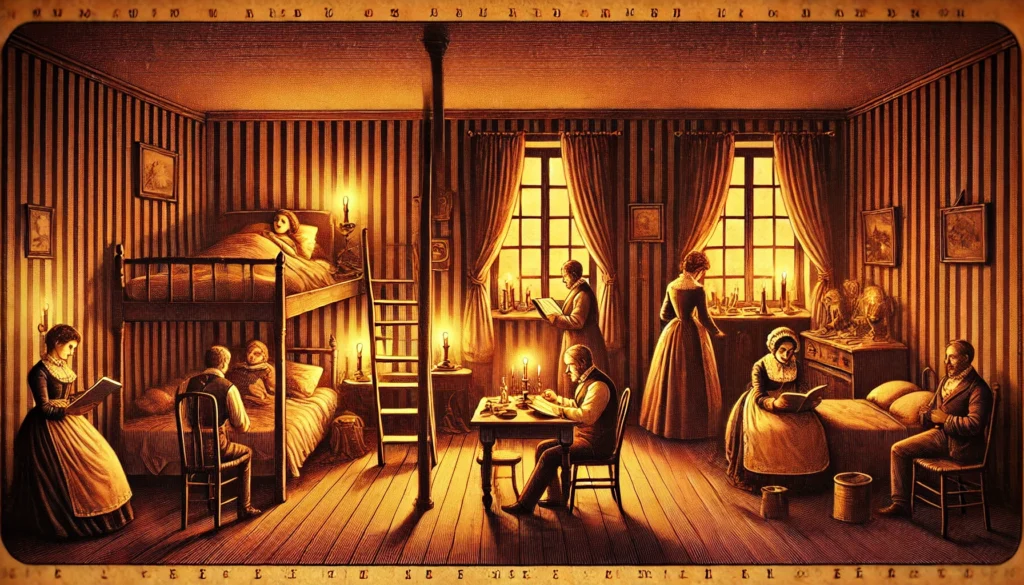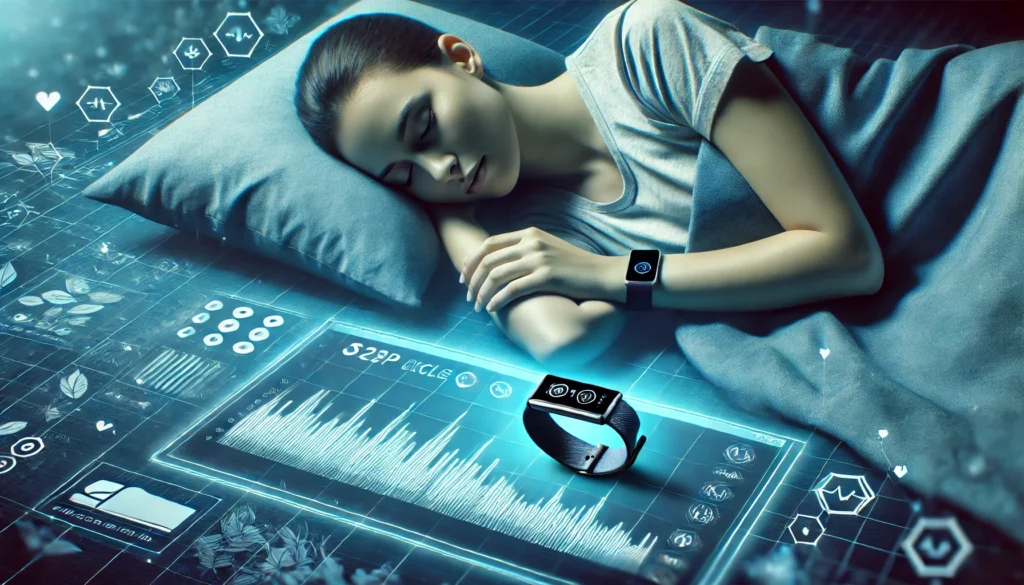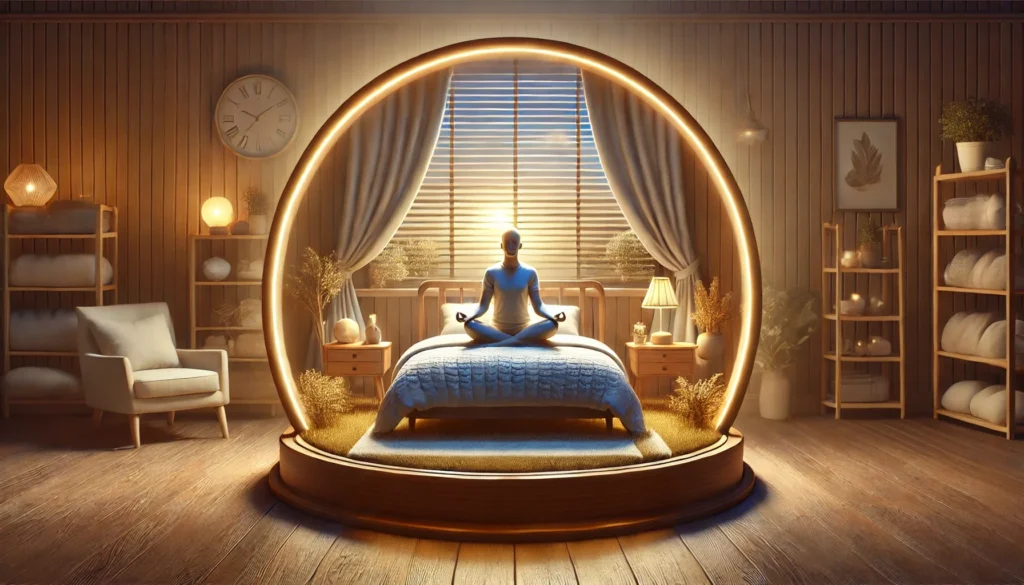In the realm of sleep, individuals often fall into different categories of sleep requirements, sparking questions about why some people need more sleep than others, and conversely, why some require less. This intricate tapestry of sleep science is woven with genetic threads, lifestyle factors, and health considerations. As we unravel these complexities, we gain insights into the science behind our sleep needs.
You May Also Like: Understanding the Impact of Chronic Sleep Deficiencies
The Genetic Puzzle: Why Do Some People Need Less Sleep?
For years, scientists have been intrigued by the variability in sleep needs among individuals. One groundbreaking discovery in this area is the identification of a gene that influences our sleep requirements. The DEC2 gene mutation, found in a small segment of the population, enables certain individuals to function optimally on as little as four to six hours of sleep per night. This genetic anomaly challenges the common notion that everyone requires eight hours of slumber for peak performance.
The Role of the DEC2 Gene
The DEC2 gene plays a pivotal role in regulating our sleep-wake cycles, impacting how we respond to sleep deprivation. Individuals with this genetic variation exhibit increased efficiency during sleep, allowing them to achieve restorative rest in a shorter timeframe. They often experience a deeper phase of sleep known as slow-wave sleep, which is thought to be the most restorative. However, it’s crucial to note that this gene mutation is rare, and most people do not possess this biological advantage.
Genetic Variability and Sleep Efficiency
Genetic variability extends beyond the DEC2 gene, encompassing other genetic markers that influence sleep architecture. Researchers are exploring additional genes that may affect sleep efficiency, duration, and quality. The complex interplay of these genetic factors contributes to the diversity of sleep needs across the population. Understanding these genetic components could pave the way for personalized sleep medicine, where interventions are tailored to an individual’s genetic makeup.
Beyond DEC2: Other Genetic Influences
While the DEC2 gene garners significant attention, other genetic factors may subtly influence sleep patterns. Variants in genes related to circadian rhythms, such as CLOCK and PER3, can affect one’s natural sleep-wake cycle and propensity for morning or evening activity. These genetic influences underscore the complexity of sleep regulation, highlighting the need for comprehensive research into the myriad of genetic factors that shape our sleep behavior.

Historical Context: Sleep Patterns Through the Ages
Before the advent of artificial lighting, human sleep patterns were closely aligned with the natural light-dark cycle. Historical records indicate that people commonly engaged in biphasic sleep, characterized by two distinct sleep periods with a wakeful interval in between. The Industrial Revolution and the subsequent introduction of electric lighting reshaped our sleep habits, condensing sleep into a single block.
Biphasic Sleep in Ancient Cultures
In ancient cultures, biphasic sleep was not only a necessity but a norm, influenced by environmental cues and lifestyle. People would often wake up for a few hours during the night to engage in various activities, such as reading, prayer, or even socializing. This period of wakefulness was considered normal and beneficial for mental reflection and creativity. Modern society’s shift away from biphasic sleep reflects broader cultural changes in daily schedules and productivity demands.
The Impact of the Industrial Revolution
The Industrial Revolution marked a significant turning point in sleep patterns, driven by the demands of factory work and the introduction of shift-based labor. Electric lighting extended productive hours beyond daylight, leading to the consolidation of sleep into a single, uninterrupted period. This transformation in sleep habits was accompanied by a societal emphasis on continuous work and efficiency, often at the expense of adequate rest.
The Rise of Sleep Deprivation
As societies became more industrialized, sleep deprivation emerged as a common issue, exacerbated by longer work hours and increased stress. The modern emphasis on productivity and extended work hours has further compressed sleep duration, often leading to chronic sleep deprivation. Understanding the historical context of sleep helps us appreciate the challenges of balancing work and rest in today’s fast-paced world.
Current Trends: The Sleep Revolution
In recent years, there has been a growing recognition of the significance of sleep for overall health and well-being. The rise of sleep tracking technologies and wellness apps has empowered individuals to monitor and optimize their sleep patterns. As a result, people are becoming more attuned to their unique sleep needs and are increasingly prioritizing quality rest.
The Role of Technology in Sleep Awareness
Technology has played a pivotal role in the sleep revolution, offering tools that provide insights into sleep patterns and quality. Wearable devices and smartphone apps track sleep stages, duration, and interruptions, enabling users to make informed decisions about their sleep habits. This data-driven approach encourages individuals to experiment with sleep schedules and environments, fostering a deeper understanding of personal sleep needs.
Shifting Attitudes Toward Sleep
The shift in attitudes toward sleep is reflected in the growing body of research highlighting its critical role in physical and mental health. Public awareness campaigns and educational initiatives stress the importance of sleep hygiene and its impact on productivity, mood, and overall well-being. This cultural shift has prompted businesses and organizations to adopt sleep-friendly policies, recognizing the link between adequate rest and employee performance.
Proactive Sleep Strategies
Individuals are increasingly adopting proactive sleep strategies, incorporating relaxation techniques, and creating optimal sleep environments. Practices such as mindfulness meditation, yoga, and cognitive-behavioral therapy for insomnia (CBT-I) are gaining popularity for their ability to enhance sleep quality. By embracing these strategies, people are taking charge of their sleep health, aligning with the broader movement toward holistic wellness.

The Practical Implications of Sleep Variability
While the genetic basis for reduced sleep needs is captivating, it’s essential to approach sleep with a balanced perspective. For the majority of the population, obtaining adequate rest remains paramount for physical and mental well-being.
Why Do Some People Need More Sleep?
Conversely, some individuals require more sleep than the average person to feel rejuvenated. Factors contributing to increased sleep needs include genetics, lifestyle choices, and underlying health conditions. For instance, individuals with certain medical conditions, such as depression or chronic fatigue syndrome, may experience heightened sleep requirements as their bodies seek additional restorative time. Understanding these factors allows health and wellness coaches, science journalists, and biohackers to provide informed guidance and support to those seeking to optimize their sleep habits.
Lifestyle Factors Influencing Sleep Needs
Lifestyle factors, such as stress levels, diet, and physical activity, play a significant role in determining sleep requirements. High-stress lifestyles can lead to disturbed sleep patterns, while poor dietary choices and lack of exercise may exacerbate sleep issues. By addressing these lifestyle factors, individuals can potentially improve their sleep quality and reduce their overall sleep needs, aligning with their biological predispositions.
Health Conditions and Sleep Requirements
Certain health conditions necessitate longer sleep durations to facilitate recovery and maintenance of health. Chronic illnesses, autoimmune disorders, and mental health conditions can impact sleep architecture, necessitating more restorative sleep. Recognizing the interplay between health and sleep is crucial for developing personalized sleep strategies that cater to individual health needs.
Tailoring Sleep Strategies for Optimal Health
For those exploring biohacking and wellness optimization, experimenting with sleep strategies can yield valuable insights. Incorporating relaxation techniques, such as meditation or mindfulness, can enhance sleep quality. Additionally, creating a sleep-conducive environment by minimizing light exposure and reducing electronic device usage before bedtime can significantly impact sleep duration and quality.
The Role of Relaxation Techniques
Relaxation techniques are instrumental in promoting better sleep by reducing stress and calming the mind. Practices like progressive muscle relaxation, deep breathing exercises, and visualization can prepare the body for restful sleep. These techniques can be easily integrated into daily routines, offering a practical approach to enhancing sleep quality without the need for medication.
Creating a Sleep-Conducive Environment
The sleep environment plays a critical role in determining sleep quality and duration. Factors such as room temperature, noise levels, and light exposure can significantly impact sleep. Ensuring a dark, quiet, and cool sleeping environment, coupled with comfortable bedding, can create an optimal setting for restorative sleep. Small adjustments in the sleep environment can lead to substantial improvements in sleep quality.
The Impact of Technology on Sleep
While technology can aid in sleep tracking, excessive use of electronic devices before bedtime can disrupt sleep. The blue light emitted by screens interferes with melatonin production, making it harder to fall asleep. Implementing a digital detox before bedtime, such as reading a physical book or engaging in relaxing activities, can mitigate the adverse effects of technology on sleep.

Future Implications: Advancements in Sleep Science
As our understanding of sleep science evolves, future advancements hold promise for further unraveling the complexities of sleep variability. Ongoing research into the genetic underpinnings of sleep, coupled with technological innovations in sleep monitoring, will continue to shed light on the diverse sleep needs of individuals.
The Promise of Personalized Sleep Medicine
Advancements in genetic research and personalized medicine offer the potential to tailor sleep interventions based on individual genetic profiles. By understanding specific genetic predispositions, healthcare providers could develop targeted therapies and recommendations that align with each person’s unique sleep needs. This personalized approach could revolutionize sleep medicine, leading to more effective treatments for sleep disorders.
Emerging Technologies in Sleep Monitoring
Innovations in sleep monitoring technology are paving the way for more accurate and comprehensive assessments of sleep quality. Devices equipped with advanced sensors and machine learning algorithms provide detailed insights into sleep stages, breathing patterns, and heart rate variability. These technologies empower individuals to make informed decisions about their sleep health, fostering greater awareness and engagement.
The Ethical Considerations
While the potential for genetic interventions to modify sleep requirements is intriguing, it raises ethical questions about the implications of altering fundamental biological processes. As science progresses, it is crucial to approach these developments with caution, ensuring that ethical considerations guide the application of new technologies. Balancing innovation with ethical responsibility will be key to harnessing the benefits of sleep science advancements.
Conclusion: Embracing Individual Sleep Needs
In conclusion, the science of less sleep underscores the intricate interplay of genetics, lifestyle, and societal influences on our sleep requirements. While a select few may possess the genetic predisposition for reduced sleep needs, the majority of individuals benefit from prioritizing sufficient rest for optimal health and well-being.
Empowering Personalized Sleep Strategies
By understanding the factors that contribute to sleep variability, we can empower ourselves and others to embrace personalized sleep strategies that align with individual needs. This empowerment extends beyond merely addressing sleep quantity, focusing on enhancing sleep quality and overall well-being. As we continue to explore the frontiers of sleep science, let us approach the journey with curiosity and a commitment to nurturing our most vital biological function.
A Holistic Approach to Sleep Health
Embracing a holistic approach to sleep health involves considering the interconnectedness of genetic, environmental, and lifestyle factors. By adopting comprehensive strategies that address all aspects of sleep, individuals can achieve a balanced and fulfilling sleep experience. This holistic perspective encourages a broader understanding of sleep as an integral component of overall health.
The Future of Sleep Science
As research progresses, the future of sleep science holds exciting possibilities for understanding and optimizing sleep. Continued exploration into the genetic, technological, and societal aspects of sleep will expand our knowledge and enhance our ability to support diverse sleep needs. By fostering collaboration among researchers, healthcare providers, and individuals, we can unlock the full potential of sleep science for the betterment of society.
Further Reading:
Genetics, Aging and Sleep: Genetics of Sleep
Need more sleep than most people? Blame your genes
Medical myths: How much sleep do we need?
Important Note: The information contained in this article is for general informational purposes only, and should not be construed as health or medical advice, nor is it intended to diagnose, prevent, treat, or cure any disease or health condition. Before embarking on any diet, fitness regimen, or program of nutritional supplementation, it is advisable to consult your healthcare professional in order to determine its safety and probable efficacy in terms of your individual state of health.
Regarding Nutritional Supplements Or Other Non-Prescription Health Products: If any nutritional supplements or other non-prescription health products are mentioned in the foregoing article, any claims or statements made about them have not been evaluated by the U.S. Food and Drug Administration, and such nutritional supplements or other health products are not intended to diagnose, treat, cure, or prevent any disease.


